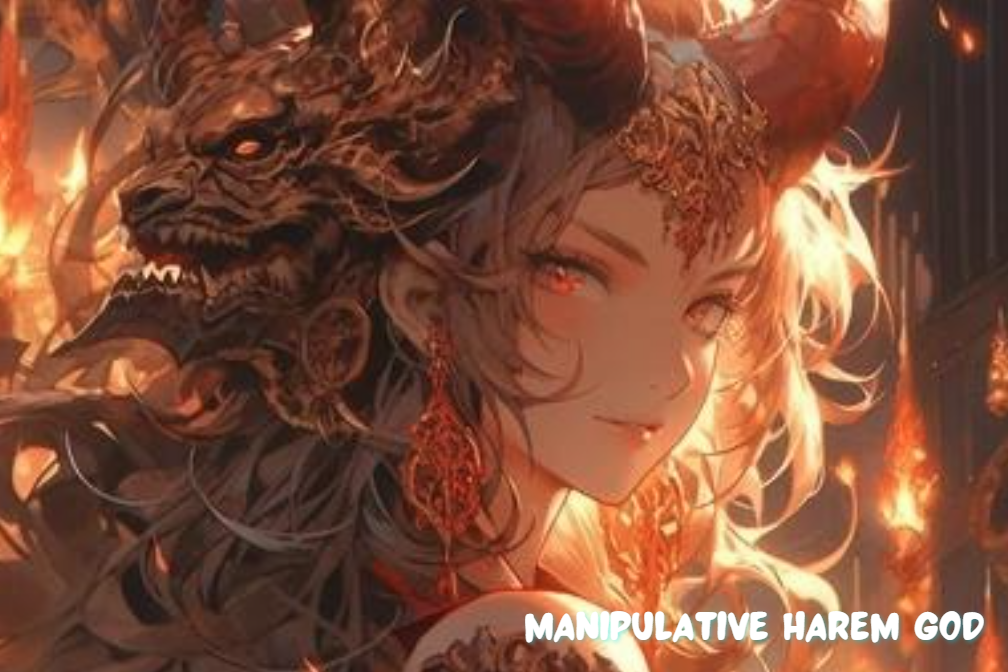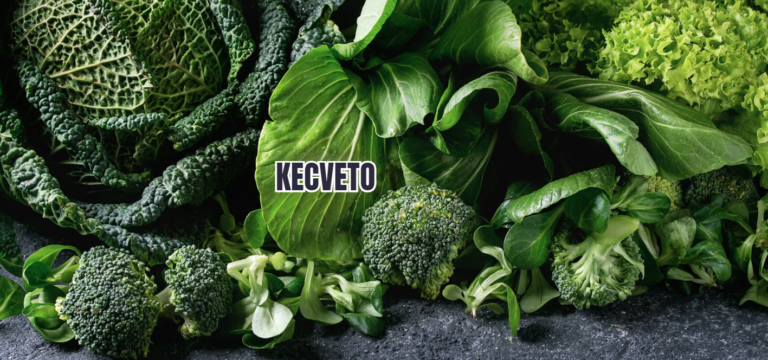The Complex World of the Manipulative Harem God: A Deep Dive into a Popular Trope
In the vast landscape of fantasy and supernatural fiction, certain tropes have captivated audiences and inspired countless stories. Among these, the concept of the “Manipulative Harem God” has emerged as a fascinating and controversial theme.
This character archetype, often seen in anime, manga, and light novels, combines elements of power, control, and complex relationships, making it a subject of much discussion and analysis.
In this article, we will explore the intricacies of the manipulative harem god, offering unique interpretations, analyses, and insights that go beyond existing information. By doing so, we aim to provide a comprehensive resource that ranks highly in search engine results and appeals to a broad audience.
Introduction to the Manipulative Harem God
The Rise of the Manipulative Harem God in Popular Culture
The “Manipulative Harem God” is a trope that has gained significant traction in popular culture, particularly within anime, manga, and light novels.
This character archetype often appears as a powerful, charismatic figure who exerts control over a group of devoted followers, usually women, through a combination of charm, deceit, and supernatural abilities. The rise of this trope can be attributed to its ability to tap into deep-seated fantasies about power, control, and the dynamics of relationships.
Defining the Manipulative Harem God Archetype
At its core, the manipulative harem god is a character who embodies both divine or supernatural power and a high degree of manipulation. This figure often leads a harem—a group of individuals, typically of the opposite sex, who are romantically or sexually attracted to the god. What sets this character apart from other powerful figures is their use of manipulation to maintain control over their followers, often using psychological tactics, deceit, and strategic planning to achieve their goals.
Why This Trope Resonates with Audiences
The manipulative harem god trope resonates with audiences for several reasons. First, it explores the complexities of power dynamics in relationships, offering a glimpse into how power can be wielded for both good and ill. Second, the trope often involves intricate plotlines and character interactions, making for engaging and suspenseful storytelling. Finally, the manipulative harem god appeals to fantasies of omnipotence and control, which, while controversial, can be deeply compelling.
Key Characteristics of the Manipulative Harem God
Power and Control
Power is the defining characteristic of the manipulative harem god. This character typically possesses extraordinary abilities, whether they are magical, supernatural, or simply a result of exceptional intelligence and charisma. Their power is not just physical but psychological, as they are able to influence and control others with ease. This control is often exerted through subtle manipulation rather than overt force, making the character both feared and revered.
Charisma and Attraction
A manipulative harem god is not just powerful but also highly charismatic. They are often portrayed as being irresistibly attractive, drawing others to them through a combination of charm, wit, and physical allure. This charisma is a key tool in their manipulation, as it allows them to win the loyalty and affection of their followers, even as they use these individuals for their own ends.
Strategic Manipulation and Deception
Manipulation is at the heart of this trope. The manipulative harem god is a master strategist, using their intelligence and cunning to manipulate events and people to their advantage. They are skilled in the art of deception, often presenting a façade of benevolence or innocence while secretly pursuing their own agenda. This duality makes them complex and unpredictable, adding depth to their character.
Complex Relationships with Followers
The relationships between a manipulative harem god and their followers are often fraught with tension and complexity. While the followers may genuinely care for the god, their feelings are often manipulated and exploited. The god, in turn, may feel affection or even love for their followers, but this is typically overshadowed by their desire for control. These relationships are often marked by a mix of devotion, fear, and resentment, creating a rich ground for character development and conflict.
Psychological and Cultural Analysis
The Appeal of Power Dynamics in Fiction
The appeal of power dynamics in fiction, particularly in the context of the manipulative harem god, lies in the exploration of control and submission. Readers and viewers are drawn to stories that examine how power can be gained, maintained, and abused. The manipulative harem god represents the ultimate authority figure, whose control over others is both seductive and terrifying. This duality creates a sense of intrigue and suspense, making the trope a compelling subject for storytelling.
Gender Dynamics and the Harem Structure
The gender dynamics of the manipulative harem god trope are complex and often controversial. Traditionally, harem structures in fiction involve a male figure surrounded by female followers, though variations exist. These dynamics can reflect broader societal issues related to gender, power, and relationships. While some narratives critique these dynamics, others reinforce traditional gender roles, making the trope a topic of ongoing debate and analysis.
Ethical Implications of the Manipulative Harem God
The manipulative harem god trope raises several ethical questions, particularly concerning the use of manipulation and control in relationships. The god’s actions often blur the line between consent and coercion, leading to discussions about the morality of their behavior. Some stories use the trope to explore the consequences of such manipulation, while others glorify the god’s power without addressing the harm they cause. This ethical ambiguity adds depth to the trope but also makes it a potentially problematic subject.
Cultural Influences and Variations
Cultural influences play a significant role in shaping the portrayal of the manipulative harem god. In Japanese anime and manga, the trope is often used to explore themes of power and control within a fantastical context. In Western media, similar characters may appear in supernatural or fantasy genres, though they are often portrayed with a more explicit focus on the moral implications of their actions. These cultural variations highlight the different ways in which power and manipulation are understood and depicted across societies.
Famous Examples of Manipulative Harem Gods
Prominent Characters in Anime and Manga
Several characters in anime and manga exemplify the manipulative harem god trope. One such character is Ainz Ooal Gown from Overlord, a powerful undead sorcerer who commands a loyal group of followers. Despite his often cold and calculating nature, Ainz manipulates his subordinates through a mix of fear, charisma, and strategic planning, embodying the essence of the manipulative harem god.
Another example is Lelouch Lamperouge from Code Geass, who, while not a god in the traditional sense, wields immense power and uses his intelligence and charisma to manipulate those around him. His complex relationships with his followers, combined with his strategic mind, make him a quintessential manipulative figure.
Western Adaptations and Interpretations
In Western media, characters like David Haller from Legion and Kilgrave from Jessica Jones embody aspects of the manipulative harem god. David Haller, with his near-godlike powers and complex psyche, manipulates those around him, often unintentionally due to his fragmented mind. Kilgrave, on the other hand, is a more traditional manipulative figure, using his mind control abilities to bend others to his will.
These characters, while not fitting the harem structure precisely, reflect the core aspects of manipulation, power, and complex relationships that define the manipulative harem god trope.
Comparative Analysis of Different Characters
Comparing these characters across different cultures and genres reveals common themes and variations in the manipulative harem god trope. In Japanese media, the focus is often on the strategic and intellectual aspects of manipulation, while Western interpretations may emphasize the psychological and ethical dimensions. This comparative analysis highlights the universality of the trope while also showcasing the unique ways it is adapted and understood in different cultural contexts.
The Evolution of the Trope Over Time
The manipulative harem god trope has evolved significantly over time. Early depictions often focused on the god’s power and control, with less attention given to the ethical implications. However, modern interpretations are more likely to explore the consequences of the god’s actions, both for themselves and for their followers. This evolution reflects broader changes in societal attitudes towards power, relationships, and morality, making the trope more nuanced and multifaceted.
The Manipulative Harem God in Modern Storytelling
How Contemporary Authors Utilize the Trope
Contemporary authors often use the manipulative harem god trope to explore themes of power, control, and the complexities of human relationships. By placing their characters in situations where manipulation and deceit are necessary for survival or success, these authors create stories that are rich in tension and intrigue. The trope also allows for deep character development, as both the god and their followers must navigate the ethical and emotional challenges posed by their relationships.
The Role of Manipulation in Building Tension
Manipulation is a key tool for building tension in stories that feature a manipulative harem god. As the god’s plans unfold, their followers—and often the audience—are kept in suspense, unsure of the god’s true intentions. This uncertainty creates a sense of unease and anticipation, making the story more engaging. Additionally, the use of manipulation often leads to dramatic plot twists and revelations, further enhancing the story’s impact.
Audience Reactions and Critiques
Audience reactions to the manipulative harem god trope are mixed. Some viewers and readers are drawn to the complexity and intrigue of the character, appreciating the strategic depth and moral ambiguity they bring to the story. Others, however, may find the trope problematic, particularly in its portrayal of gender dynamics and the potential for glorifying manipulation. These critiques highlight the need for careful handling of the trope, ensuring that it is used in a way that is both engaging and ethically responsible.
Future Trends and Predictions for the Trope
As storytelling continues to evolve, the manipulative harem god trope is likely to undergo further changes. Future interpretations may place greater emphasis on the psychological and emotional impact of the god’s actions, both on themselves and their followers. Additionally, we may see more diverse and inclusive representations of the trope, with a focus on subverting traditional gender roles and exploring new dynamics. These trends suggest that the manipulative harem god will remain a relevant and compelling subject in modern storytelling.
Creating a Manipulative Harem God in Your Story
Essential Elements to Include
When creating a manipulative harem god in your story, it is important to include several key elements:
- Power: The character must possess significant power, whether supernatural, intellectual, or charismatic.
- Manipulation: The god should use manipulation as a primary tool for achieving their goals, often through subtle and strategic means.
- Complex Relationships: The god’s relationships with their followers should be intricate and multifaceted, with a mix of loyalty, fear, and affection.
- Moral Ambiguity: The character should exist in a morally grey area, making their actions and motivations complex and open to interpretation.
Balancing Power with Complexity
A successful manipulative harem god is not just powerful but also complex. It is important to balance the character’s abilities with their flaws and vulnerabilities, ensuring that they are not simply an all-powerful figure but a nuanced individual with depth. This complexity adds realism and relatability to the character, making them more engaging for the audience.
Ethical Considerations for Writers
When writing a manipulative harem god, ethical considerations are paramount. It is important to be aware of the potential for the trope to perpetuate harmful stereotypes or glorify manipulative behavior. Writers should strive to present the character’s actions in a way that is thoughtful and responsible, exploring the consequences of manipulation and power dynamics rather than simply celebrating them.
Avoiding Stereotypes and Clichés
To create a fresh and compelling manipulative harem god, it is essential to avoid falling into stereotypes and clichés. This can be achieved by subverting traditional expectations, such as reversing gender roles or presenting the god’s manipulation as a form of self-preservation rather than mere ambition. By approaching the trope with creativity and originality, writers can craft a character that feels both familiar and new.
Conclusion: The Enduring Fascination with the Manipulative Harem God
The manipulative harem god is a complex and multifaceted character archetype that has captivated audiences across cultures and genres. Defined by their power, charisma, and strategic manipulation, these characters explore the darker aspects of human relationships and the consequences of unchecked power.
Through a combination of psychological depth, ethical ambiguity, and intricate relationships, the manipulative harem god remains a compelling subject in modern storytelling.
The manipulative harem god trope has had a lasting impact on popular culture, influencing a wide range of stories and characters. Its exploration of power dynamics and manipulation resonates with audiences, offering both entertainment and thought-provoking commentary on the nature of control and influence. As the trope continues to evolve, it will likely remain a prominent and influential aspect of fiction.
The future of the manipulative harem god trope is bright, with ample opportunities for innovation and reinterpretation.
As writers and creators continue to explore the complexities of power and relationships, the trope will likely take on new forms and meanings, reflecting the changing landscape of storytelling. Whether as a central figure or a supporting character, the manipulative harem god will continue to captivate and challenge audiences for years to come.
FAQs about the Manipulative Harem God
What defines a manipulative harem god in fiction?
A manipulative harem god in fiction is a powerful and charismatic character who uses manipulation and control to maintain a group of devoted followers, often within a harem structure. This character is typically defined by their strategic use of power, their complex relationships, and their moral ambiguity.
Why is the manipulative harem god a popular trope?
The manipulative harem god is popular because it explores deep and often controversial themes related to power, control, and relationships. The trope offers a mix of intrigue, suspense, and psychological depth, making it a compelling subject for storytelling.
How do gender dynamics influence the portrayal of manipulative harem gods?
Gender dynamics play a significant role in the portrayal of manipulative harem gods, often reflecting societal views on power and relationships. While traditional portrayals often involve a male god with female followers, modern interpretations may subvert these roles or explore the trope from different gender perspectives.
Are there any ethical concerns with this trope?
Yes, there are ethical concerns with the manipulative harem god trope, particularly related to the portrayal of manipulation and control in relationships. Writers should be mindful of the potential for the trope to perpetuate harmful stereotypes or glorify unethical behavior, and should strive to present the character’s actions in a thoughtful and responsible manner.
How can writers create a unique and compelling manipulative harem god?
To create a unique and compelling manipulative harem god, writers should focus on balancing the character’s power with complexity, avoiding stereotypes and clichés, and exploring the ethical implications of their actions. By approaching the trope with creativity and originality, writers can craft a character that is both engaging and thought-provoking.






